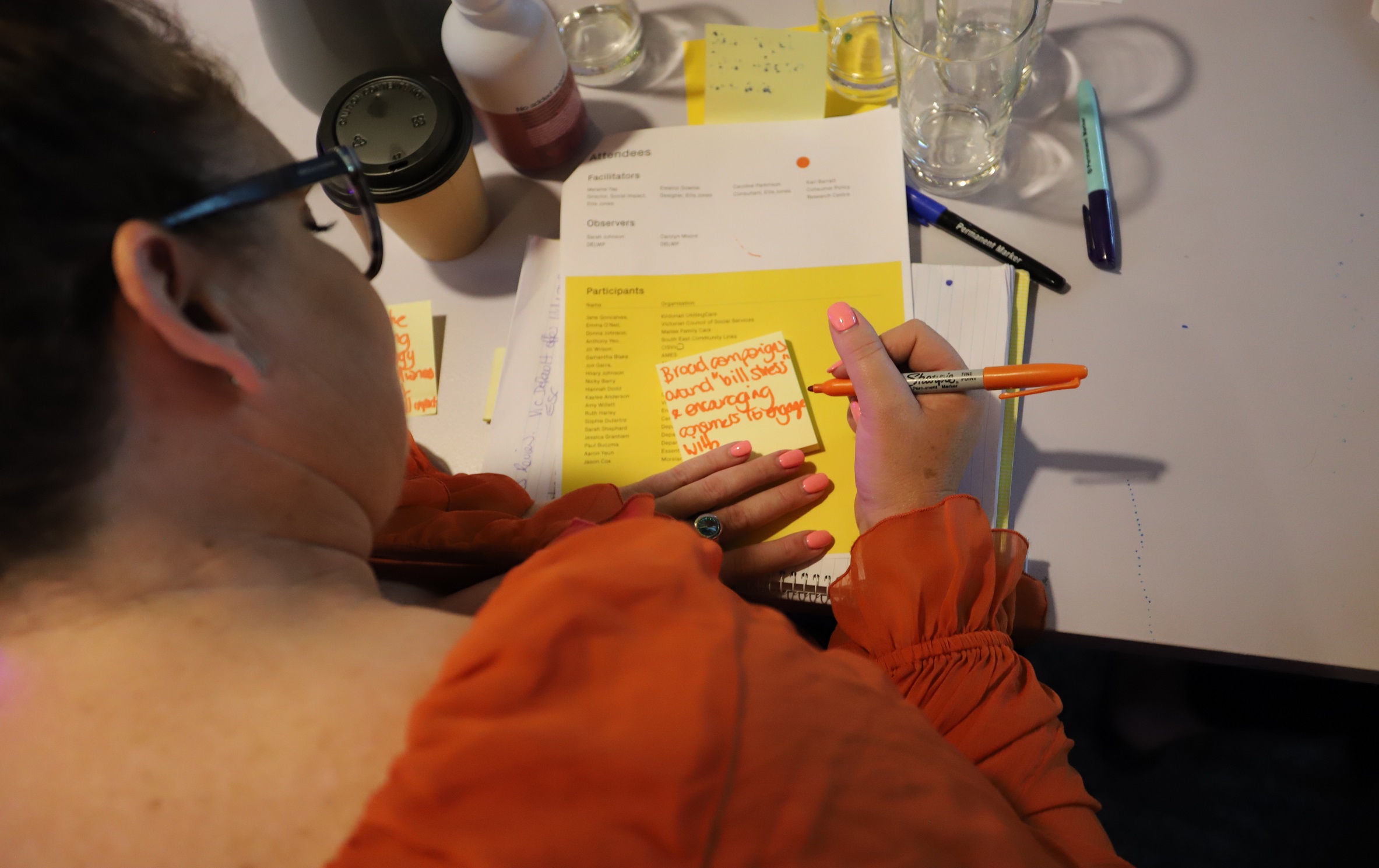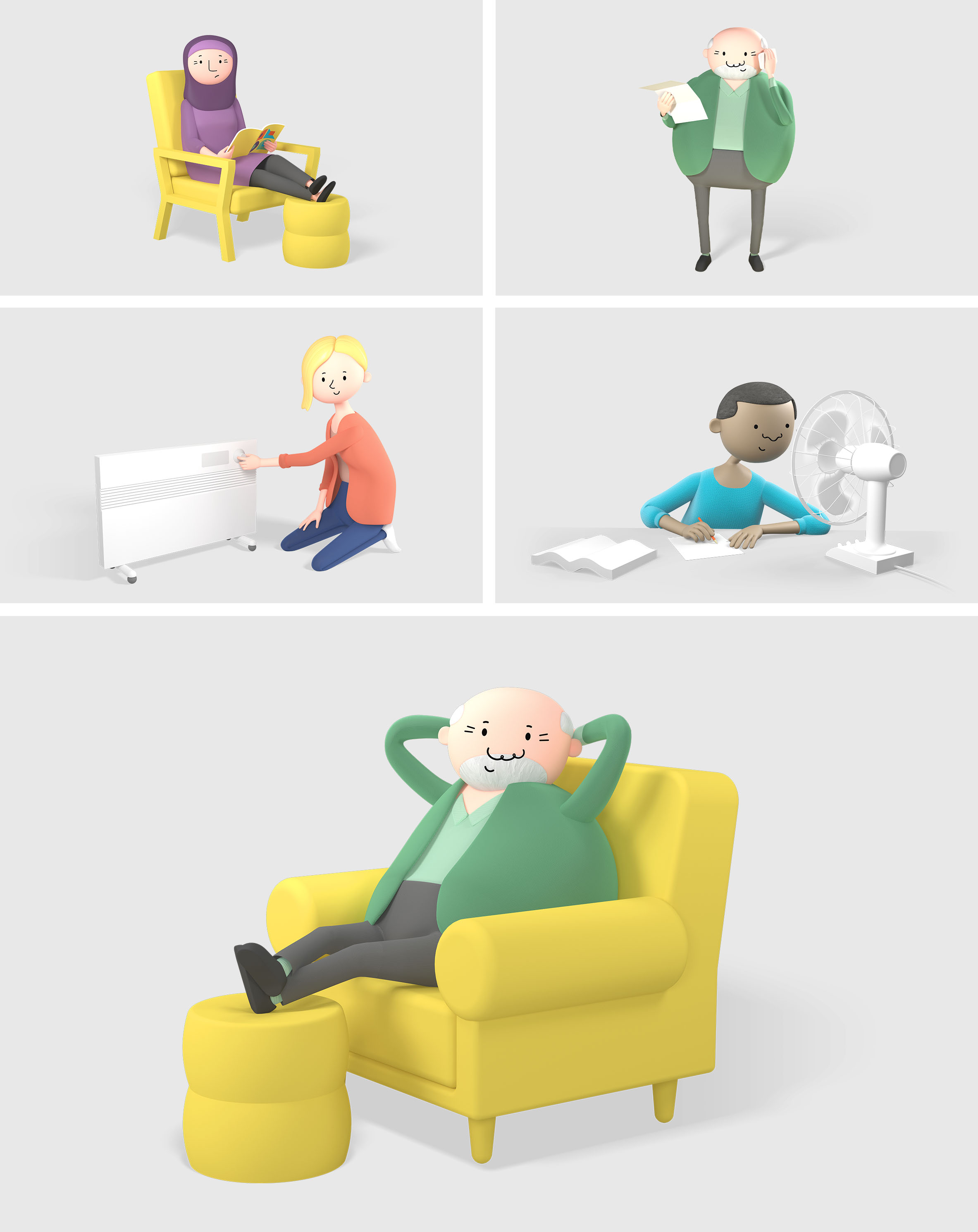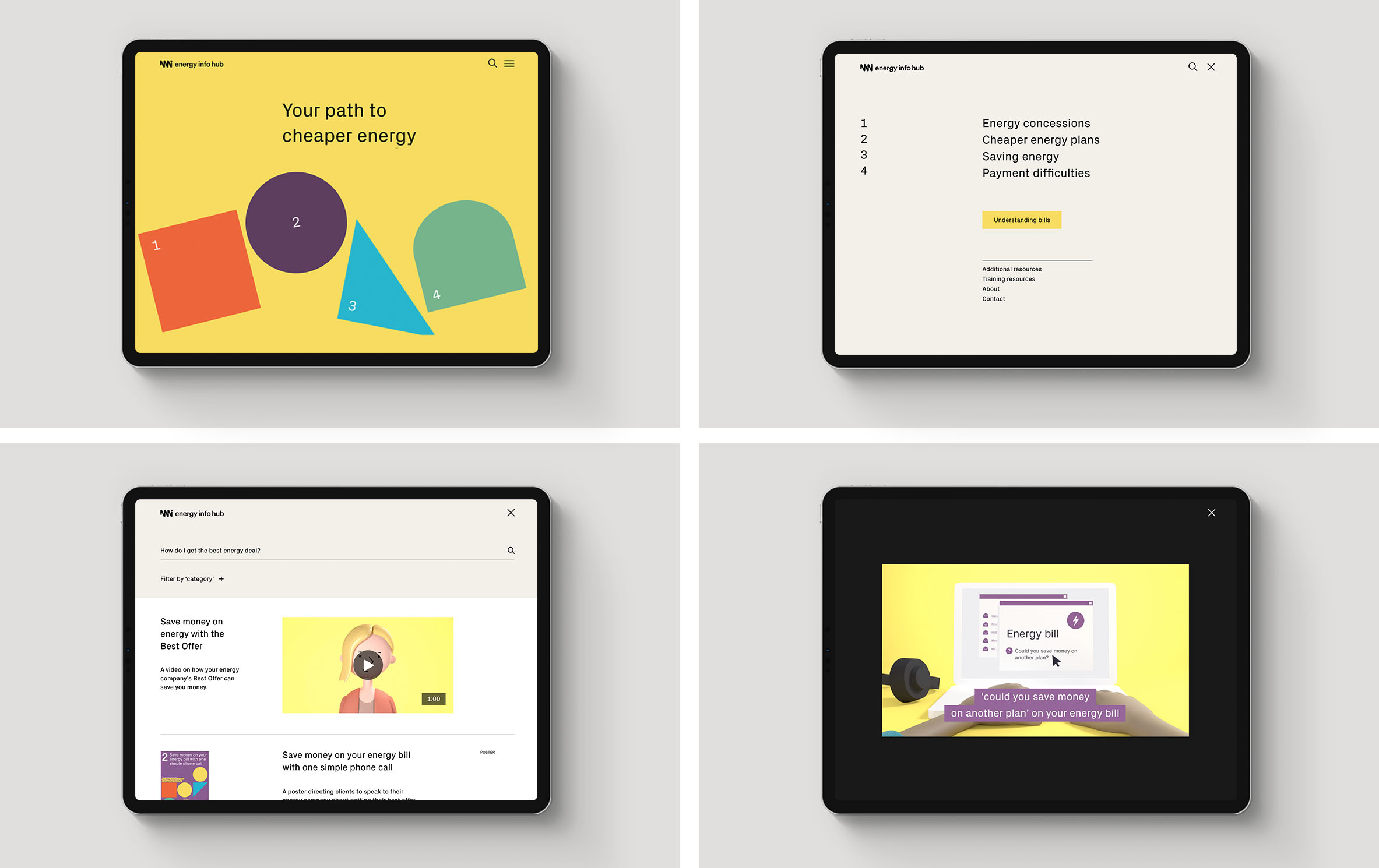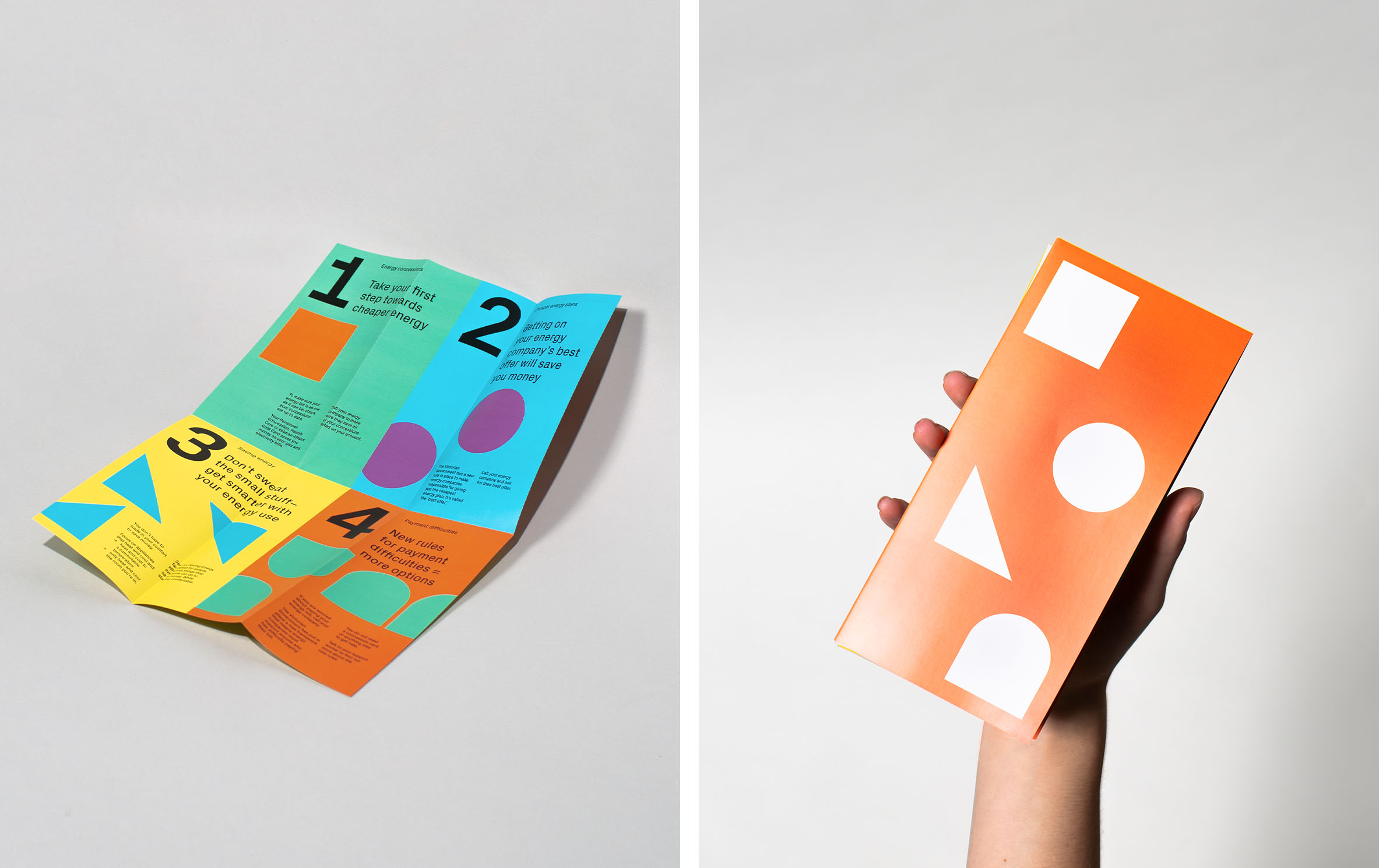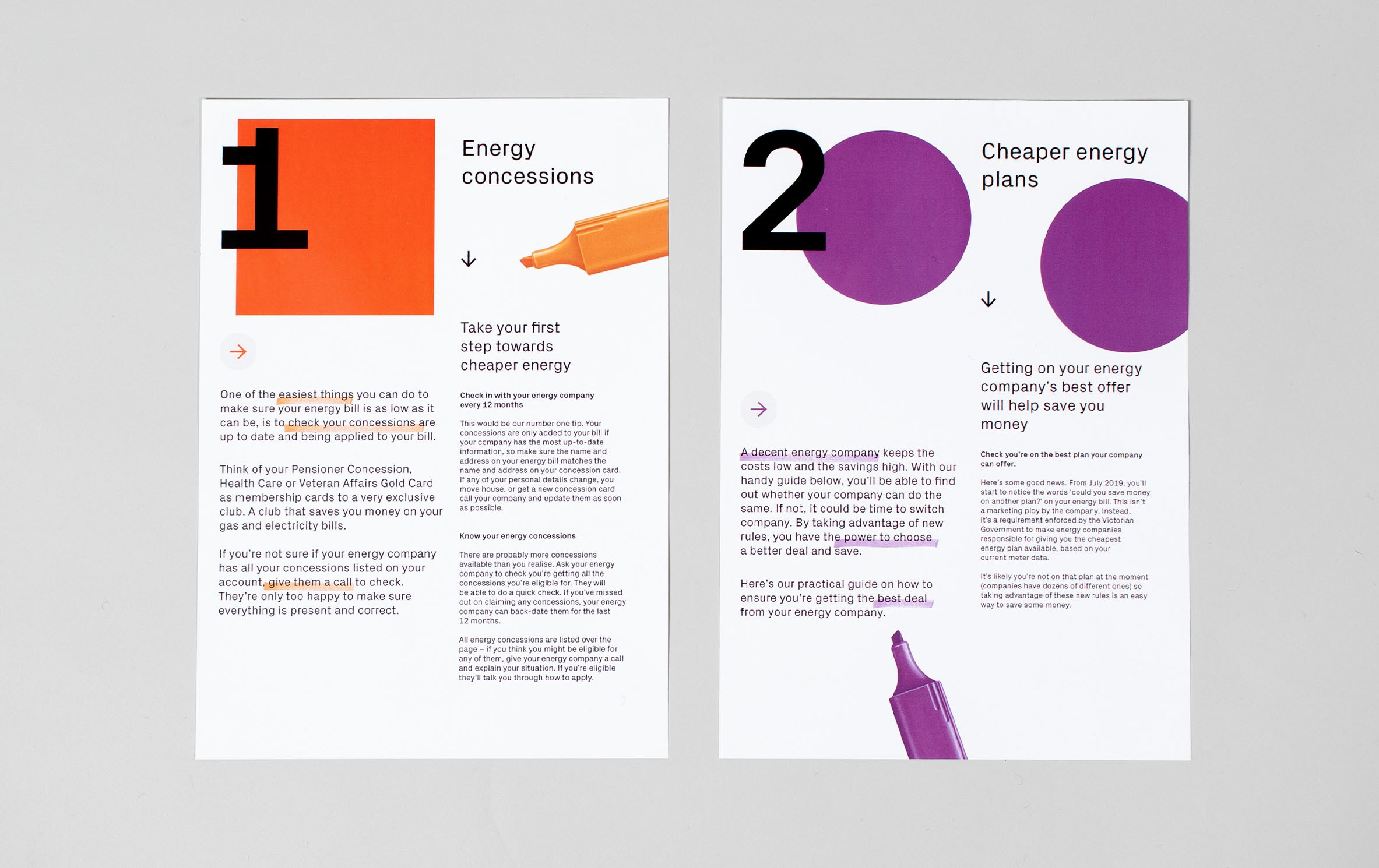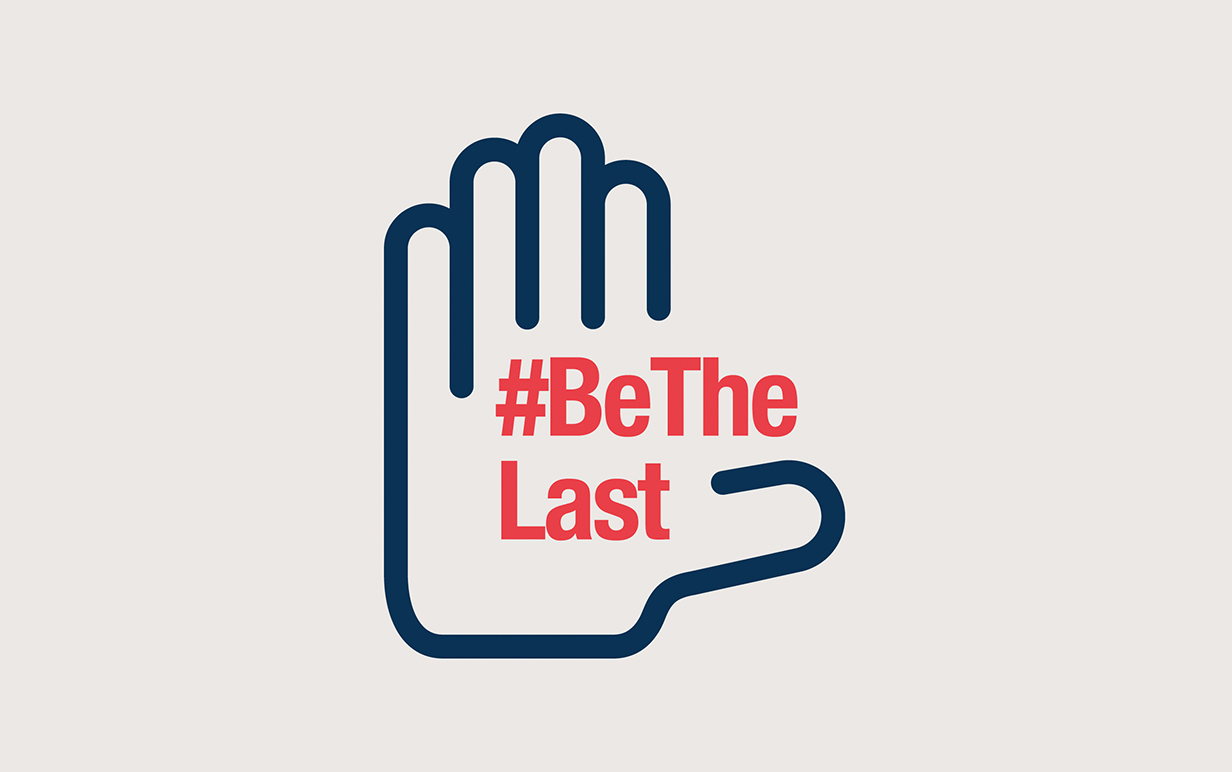Working in partnership to assist vulnerable consumers to decrease their energy costs.
Learn more about this project
Recognition



Challenge
Energy prices are on the rise. Vulnerable consumers are particularly affected – energy is a source of stress and confusion for many.
The Energy Affordability Training Partnership, a Victorian Government funded collaboration between Ellis Jones, the Consumer Policy Research Centre (CPRC) and Community Information & Support Victoria (CISVic) address these issues.
Emergency Relief (ER) workers are provided with training and resources to assist vulnerable households to reduce their energy costs.
Response
Ellis Jones employed the full breadth of agency experience and skill to cover three key project elements: co-design, material creation & design, and evaluation.
- Co-design: Facilitating a co-design workshop with policymakers, front line workers and community organisations to map common challenges, ideate and prioritise interventions. One-on-one sessions were held with ER workers and their clients involving a range of hands-on activities to understand client personas, communication methods and channels and information needs.
- Material creation & design: Incorporating the research findings, Ellis Jones co-wrote, designed and developed a toolkit of resources (website, fact sheets, videos, posters, bill reading tools, flowcharts) to assist vulnerable consumers to engage with the energy market and reduce energy costs. Designed materials need to be accessible for culturally and linguistically diverse communities. Block colours, geometric shapes, and large-scale numbering represent each key area of information. The materials were also written in plain language to ensure that key information was understood by all audiences.
- Evaluation: Developing a measurement framework during the initial stages of the project with baseline data collected prior to the start of training. The final project evaluation outlines the extent to which the partnership meets project goals, and provides recommendations for the future rollout of the program.
Outcomes
The partnership exceeded all project targets, demonstrating the strength of a collaborative co-design approach. Key findings include:
- more than 90% of ER workers strongly agreed that the rights-based training provided them with the skills, knowledge and confidence to better support their clients to reduce their energy bills and associated stress and anxiety
- CISVic reported that this energy training was one of the most successful programs they’ve implemented in terms of uptake and outcome
- DELWP identified program gaps for their upcoming new policy proposals, resulting in the funding of a new project focussing on hard-to-reach CALD audiences
- New productive relationships were built between co-design participants – leading to an ongoing exchange of resources and information between networks.
Visit the Energy Info Hub website and play with the full range of content.
Discipline
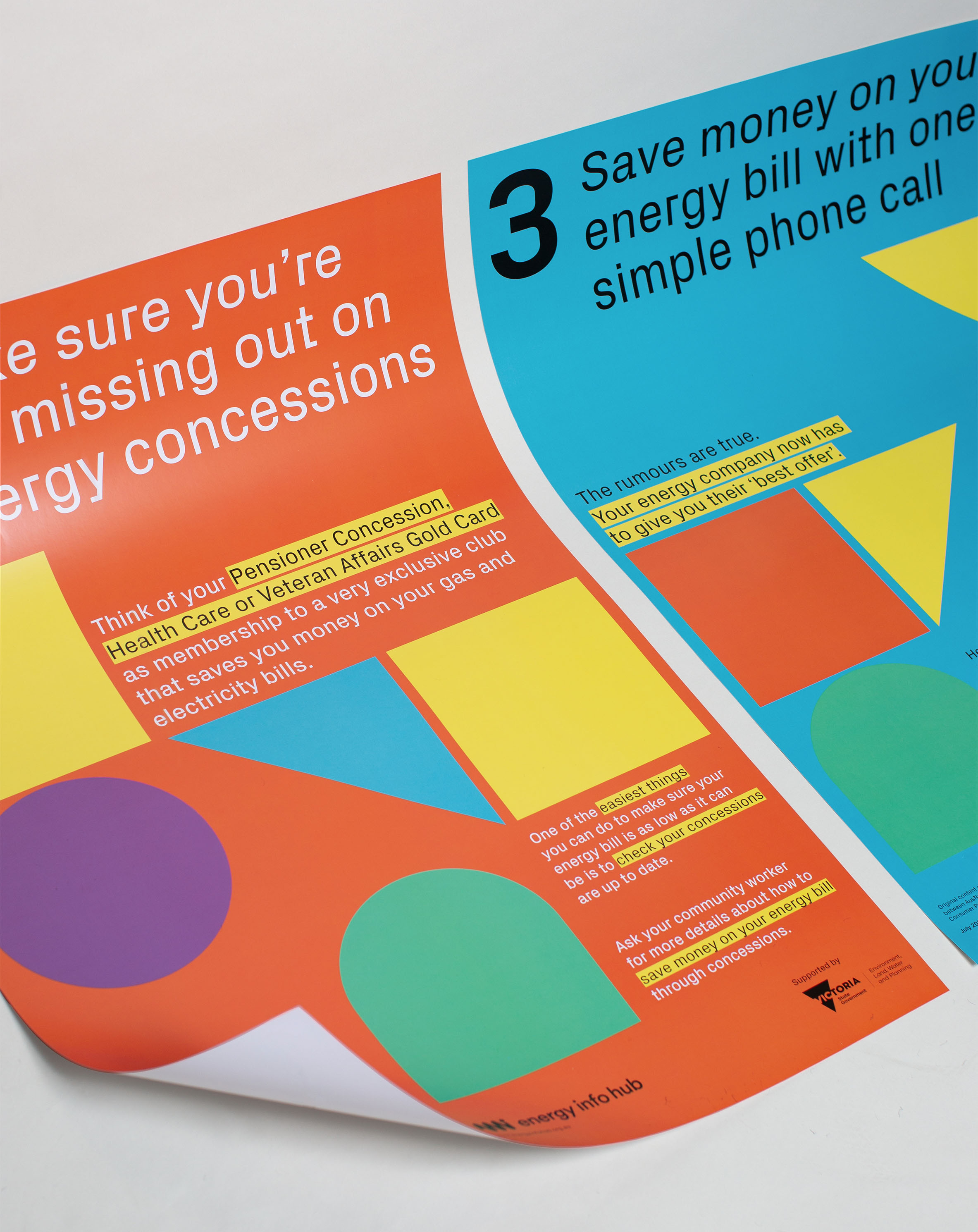
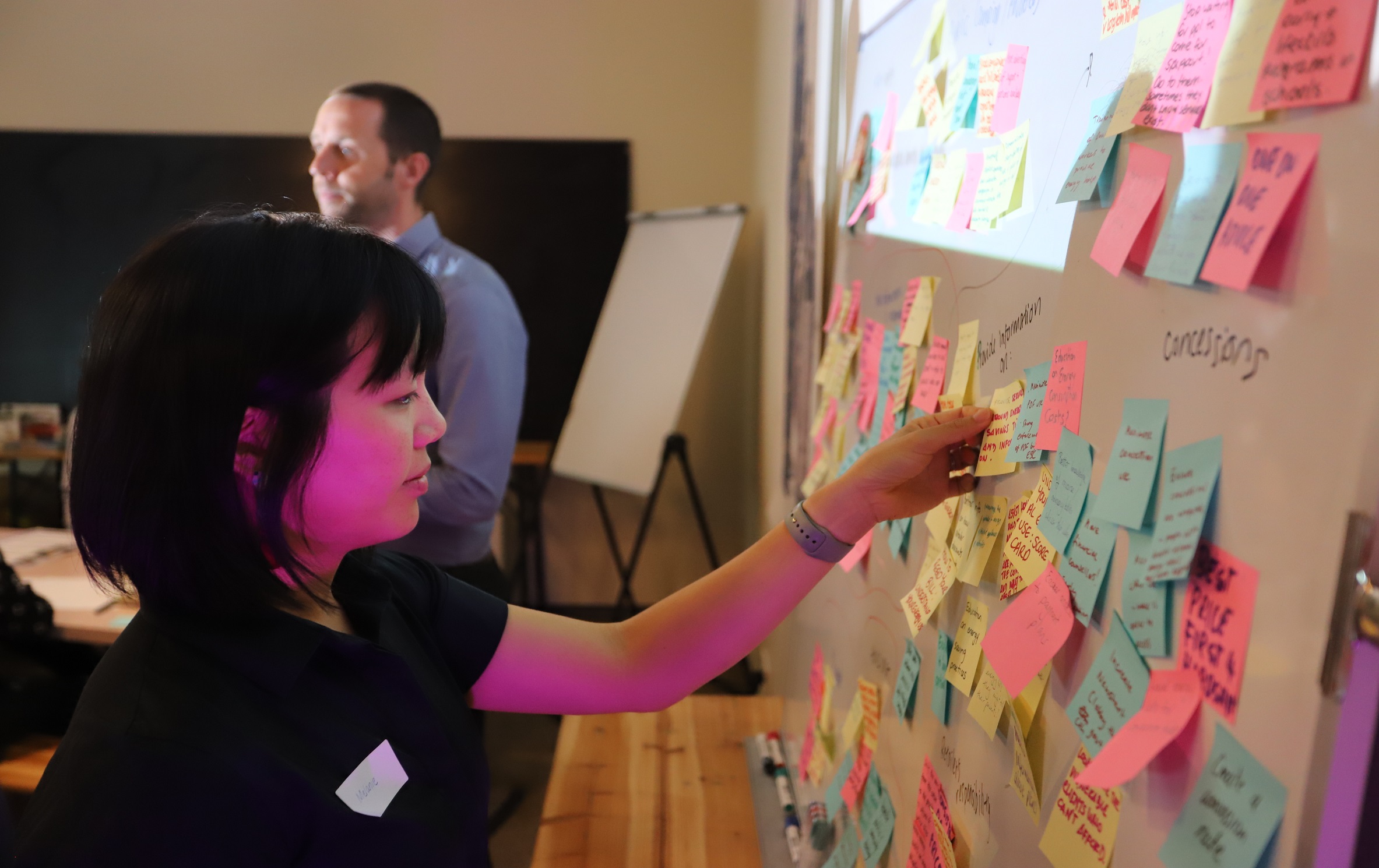
In its research efforts and in developing the project deliverables the work demonstrates the value of the collaborative approach. The resulting materials are creative, imaginative, simple and appropriate and they are highly likely to engage the consumer audience emotionally.
—IABC 2020 Gold Quill Awards
